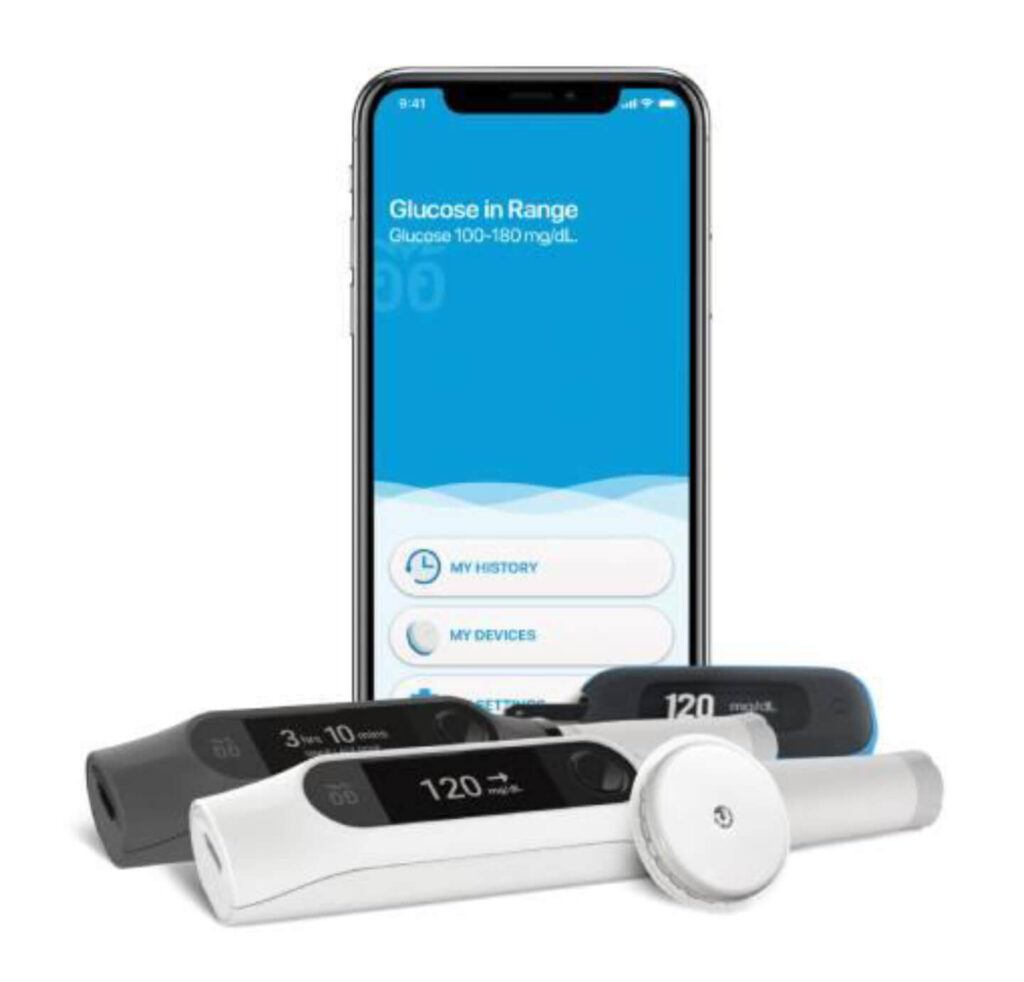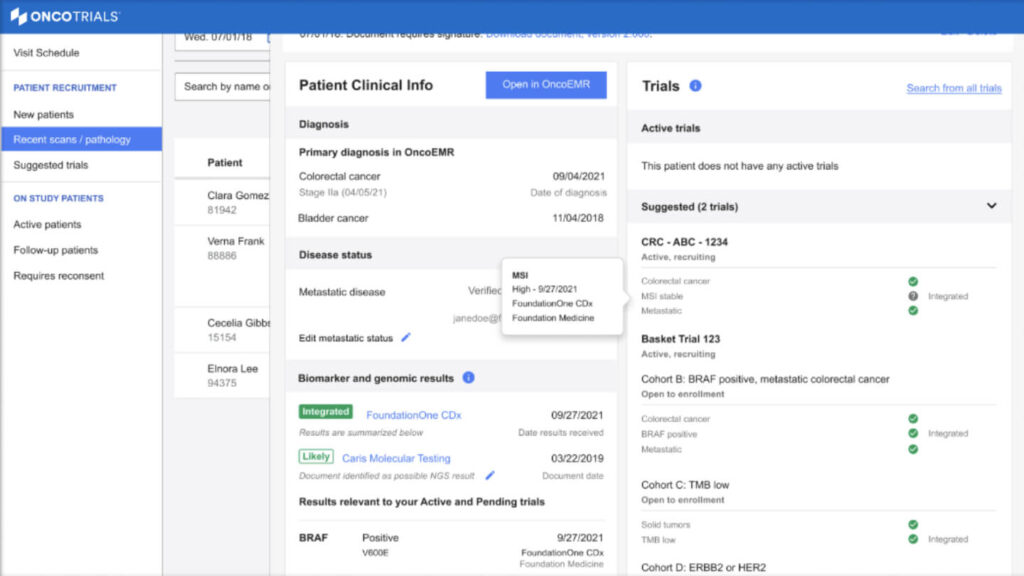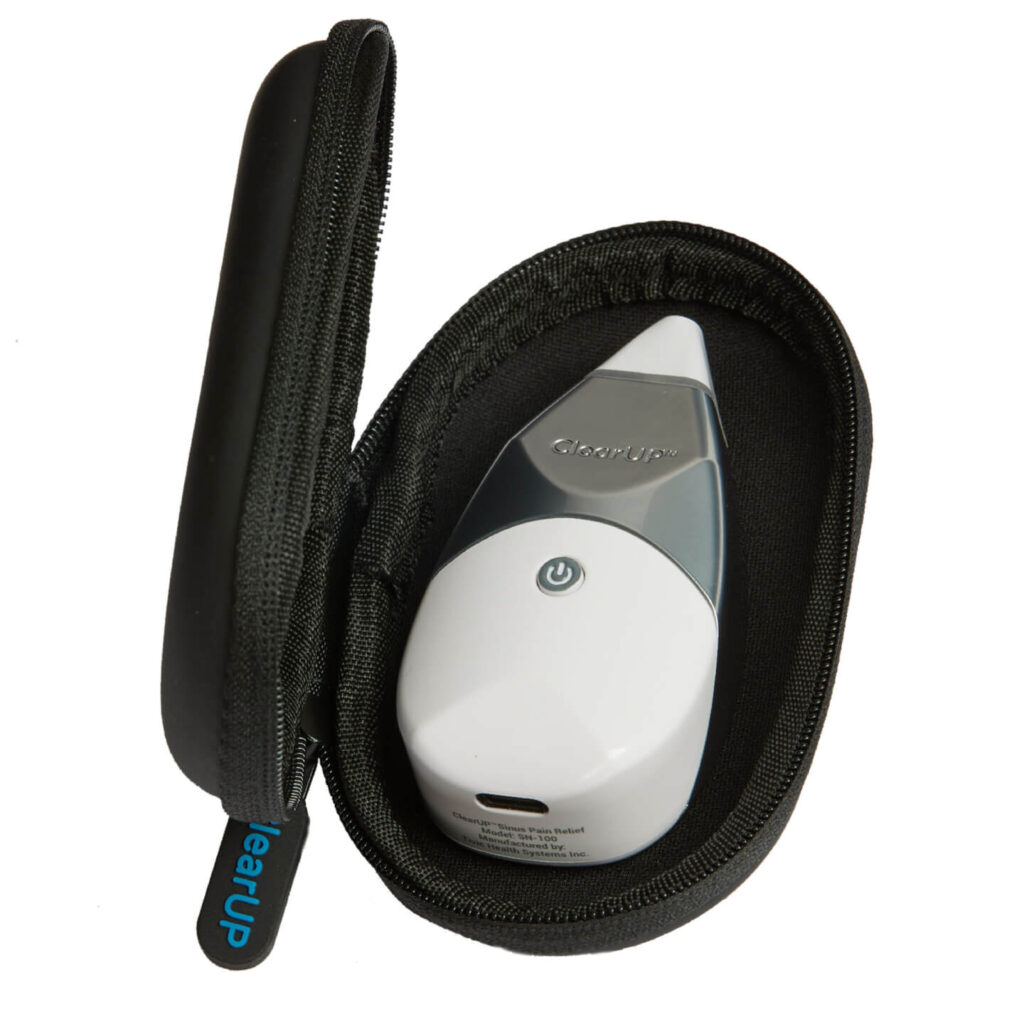A medical device startup is a company in its early stages of development that specializes in creating, developing, and bringing innovative medical devices to the market. These innovative medical devices can be anything from diagnostic tools and prosthetics to surgical robots and wearable monitors.
Medical device startup companies have an essential role in driving the growth and development of the medical device market. According to a report by Statista, the medical device market has a projected annual growth rate of 5.26%, moving towards a market volume of US$609.70 billion by 2028.
Innovative medical device startups analyze healthcare gaps, identifying deficiencies in existing solutions, from diagnostics challenges to therapeutics limitations. The core mission of emerging medical device startups is to create targeted solutions that address these gaps, advancing healthcare technology and improving patient outcomes.
In this article, we will present and discuss the top 12 medical device startup companies to look out for in 2024.
We selected startups based on their significant media coverage due to notable achievements in the medical device industry. Note that the mentioned companies are just the primary examples among numerous new startups advancing healthcare globally.
SimplerQMS provides a fully GAMP 5-validated eQMS solution tailored for Medical Device companies. Discover how our software streamlines quality management and supports compliance by booking a demo with our Quality Solution experts.
The following medical device startups will be examined in greater detail.
- AbCellera
- Bigfoot Biomedical
- BrainsWay
- Ceribell
- Flatiron
- Freespira
- Guardant Health
- MMI
- Natera
- Tempus
- Tivic
- Verily
AbCellera
AbCellera is a Canadian biotechnology startup specializing in antibody discovery. AbCellera was founded in 2012 by Carl Hansen, Veronique Lecault, Kathleen Lisaingo, Daniel Da Costa, and Kevin Heyries.
AbCellera aims to address challenges in antibody research and development in the medical field. The company’s flagship product, a platform to develop first-in-class antibody medicines, is renowned for its high-throughput antibody screening capabilities.
AbCellera operates globally, serving clients in the biopharmaceutical industry, such as Moderna and Lilly.
Additionally, AbCellera has received recognition for its innovative approach, being named by Fierce Biotech as one of the Fierce 15 Biotechnology Companies in 2020.
AbCellera is revolutionizing the medical industry with its innovative antibody discovery platform, as showcased below.
Key facts about the AbCellera.
| Company name | AbCellera |
| Industry | Biotechnology Research, Pharmaceutical |
| Product | Antibody discovery platform and antibody therapies |
| Location | Vancouver, Canada |
| Founding date | 2012 |
| Founders | Carl Hansen, Veronique Lecault, Kathleen Lisaingo, Daniel Da Costa, and Kevin Heyries |
| Employee size | 501-1,000 |
| Funding stage | Series C |
| Estimated revenue (2023) | $38.0 million |
| Website | abcellera.com |
Bigfoot Biomedical
Bigfoot Biomedical is a United States-based healthcare technology startup manufacturing medical equipment. Bigfoot Biomedical specializes in the field of diabetes management.
The medical device startup was founded in 2014 by Jeffrey Brewer and Bryan Mazlish to simplify diabetes management and improve glycemic control for people requiring insulin therapy.
Bigfoot Biomedical’s flagship product, the Bigfoot Unity Diabetes Management System, is renowned for its real-time integration of continuous glucose monitoring (CGM) data to provide personalized insulin dose recommendations.
Bigfoot Biomedical currently operates in the United States and partners with companies such as Lilly and Abbott.
Additionally, Bigfoot Biomedical has earned recognition as one of Fast Company’s World’s Most Innovative Companies in the medical device category for 2023.
Bigfoot Biomedical is transforming the medical industry with its advanced Diabetes management system, as showcased below.

Key facts about Bigfoot Biomedical.
| Company name | Bigfoot Biomedical |
| Industry | Healthcare Technology, Medical Equipment Manufacturing |
| Product | Automated insulin delivery system |
| Location | California, United States |
| Founding date | 2014 |
| Founders | Jeffrey Brewer and Bryan Mazlish |
| Employee size | 51-200 |
| Funding stage | Series C |
| Estimated revenue (2023) | $25.0 million |
| Website | bigfootbiomedical.com |
BrainsWay
BrainsWay is an Israeli medical technology startup specializing in neuromodulation. BrainsWay was founded in 2003 by Avner Hagai, Yiftach Roth, David Zacut, and Abraham Zangen to address mental health issues through innovative technologies in the medical field.
The company’s flagship product, the Deep Transcranial Magnetic Stimulation (Deep TMS) system, is renowned for its non-invasive approach that uses magnetic fields in treating various neurological and psychiatric disorders, such as major depression, anxious depression, obsessive-compulsive disorder, and smoking addiction.
BrainsWay operates in over 30 countries with more than 800 providers, including licensed independent clinicians and hospitals.
Additionally, BrainsWay has received recognition for its innovative contributions, winning awards such as the Fast Company’s annual list of the World’s Most Innovative Companies for 2023.
BrainsWay is revolutionizing the medical industry with its innovative Deep TMS system, as showcased below.
Key facts about BrainsWay.
| Company name | BrainsWay |
| Industry | Medical Technology, Neuromodulation, Medical Equipment Manufacturing |
| Product | Deep transcranial magnetic stimulation device |
| Location | Jerusalem, Israel |
| Founding date | 2003 |
| Founders | Avner Hagai, Yiftach Roth, David Zacut, and Abraham Zangen |
| Employee size | 51-200 |
| Funding stage | Series B |
| Estimated revenue (2023) | $33.0 million |
| Website | brainsway.com |
Ceribell
Ceribell is a United States-based medical technology startup specializing in neurology, particularly in the field of electroencephalogram (EEG) monitoring. Ceribell was founded in 2014 by Jane Chao, Josef Parvizi, and Chris Chafe.
Ceribell aim is to improve the diagnosis and management of epilepsy and other neurological conditions by providing continuous bedside EEG monitoring in acute care settings.
Ceribell’s flagship product, the Ceribell Point-of-Care EEG, is renowned for its portability and easy deployment. Ceribell Point-of-Care EEG offers individuals with no background in EEG the ability to detect and rule out suspected seizures with remarkable accuracy.
Ceribell currently operates in the United States and primarily serves hospitals and healthcare institutions seeking advanced tools for neurological monitoring.
Additionally, Ceribell has received recognition for its innovative approach, winning multiple awards at the Medical Design Excellence Awards (MDEAs), including a gold medal in Testing and Diagnostic Products and Systems, a silver in NonSurgical Hospital Supplies and Equipment, and the Best in Show award.
Ceribell is transforming the medical industry with its advanced Ceribell Point-of-Care EEG, as showcased below.
Key facts about Ceribell.
| Company name | Ceribell |
| Industry | Medical Technology, Neurotechnology, Medical Equipment Manufacturing |
| Product | Wearable electroencephalogram (EEG) devices |
| Location | California, United States |
| Founding date | 2014 |
| Founders | Jane Chao, Josef Parvizi, and Chris Chafe |
| Employee size | 51-200 |
| Funding stage | Series C |
| Estimated revenue (2023) | $25.0 million |
| Website | ceribell.com |
Flatiron
Flatiron is a United States healthcare technology startup specializing in real-world data and real-world evidence solutions for oncology.
Flatiron was founded in 2012 by Nat Turner and Zach Weinberg to revolutionize cancer care by leveraging real-world data to improve clinical decision-making, drug development, and research.
The company’s flagship product, a cloud-based oncology software and analytics, is renowned for its ability to aggregate and analyze data from electronic health records (EHRs) of millions of cancer patients, providing valuable insights into treatment patterns, patient outcomes, and disease progression.
Flatiron currently operates in the United States, Germany, Japan, and the United Kingdom and primarily serves oncology clinics, hospitals, pharmaceutical companies, and research institutions seeking to improve the understanding and treatment of cancer.
Flatiron is revolutionizing the medical industry with its innovative cloud-based oncology platform, as showcased below.

Key facts about Flatiron.
| Company name | Flatiron |
| Industry | Biotechnology Research, Oncology |
| Product | Oncology clinical trial data management software |
| Location | New York, United States |
| Founding date | 2012 |
| Founders | Nat Turner and Zach Weinberg |
| Employee size | 1,001-5,000 |
| Funding stage | Series D |
| Estimated revenue (2023) | $1.0 billion |
| Website | flatiron.com |
Freespira
Freespira is a United States-based healthcare startup specializing in the mental health and digital therapeutics industry. Freespira was founded in 2013 by Debra Reisenthel and Beth Siegelman to address the specific need for effective treatment of panic attacks and panic disorder.
Freespira’s flagship product, the Freespira breathing monitoring system, is renowned for its unique feature of providing guided respiratory exercises to help individuals manage and overcome panic attacks. This innovative digital therapeutic approach has proven to be effective in treating panic disorder, offering a non-pharmacological solution.
Freespira operates in the United States, providing its digital therapeutic solution to a diverse clientele, including individuals suffering from panic attacks and related disorders, such as veterans.
Additionally, Freespira has received recognition for its innovative approach, winning awards such as the Fast Company’s award for Most Innovative Companies in 2023.
Freespira is revolutionizing the medical industry with its modern digital breathing monitoring system, as showcased below.
Key facts about Freespira.
| Company name | Freespira |
| Industry | Mental Health Care, Medical Technology |
| Product | Device for exhaled carbon dioxide level and respiration rate monitoring |
| Location | Washington, United States |
| Founding date | 2013 |
| Founders | Debra Reisenthel and Beth Siegelman |
| Employee size | 11-50 |
| Funding stage | Series A |
| Estimated revenue (2023) | $8.0 million |
| Website | freespira.com |
Guardant Health
Guardant Health is a United States precision medicine startup specializing in liquid biopsy tests for detecting and monitoring cancer. The company was founded in 2012 by Helmy Eltoukhy and Amir Ali Talasaz.
Guardant Health aims to revolutionize cancer care by making comprehensive cancer testing accessible through a simple blood draw. This groundbreaking liquid biopsy provides oncologists with valuable insights for personalized cancer treatment, allowing for early detection and monitoring.
The company’s flagship product, the Guardant360 CDx, is renowned for its ability to analyze multiple genes and mutations from a single blood sample, providing valuable insights into a patient’s specific cancer type, genetic profile, and potential treatment options.
Guardant Health currently operates in over 60 countries and serves diverse customers, including oncologists, hospitals, and pharmaceutical companies.
Additionally, Guardant Health has received recognition for its innovative approach, winning awards such as the Oncology Product Innovation of the Year conferred by Healthcare Medtech Asia Awards in 2023.
Guardant Health is revolutionizing the medical industry with its innovative Guardant360 CDx, as showcased below.
Key facts about Guardant Health.
| Company name | Guardant Health |
| Industry | Biotechnology Research, Precision Medicine, Oncology |
| Product | Cancer liquid biopsy tests |
| Location | California, United States |
| Founding date | 2012 |
| Founders | Helmy Eltoukhy and AmirAli Talasaz |
| Employee size | 1,001-5,000 |
| Funding stage | Series D |
| Estimated revenue (2023) | $563.0 million |
| Website | guardanthealth.com |
MMI
MMI (Medical Microinstruments) is an Italian startup specializing in the medical device industry, particularly in developing microsurgical instruments. MMI was founded in 2015 by Giuseppe Prisco, Hannah Teichmann, and Massimiliano Simi. MMI aims to address the need for advanced microsurgical tools in the medical field.
The MMI’s flagship product, the Symani Surgical System, is renowned for its wristed instruments that offer enhanced dexterity and maneuverability, allowing surgeons to perform complex microsurgical procedures with greater control and precision.
MMI currently operates globally and serves a diverse clientele, including surgeons specializing in breast cancer, lymphedema, head and neck cancer, and trauma.
Additionally, MMI has received recognition for its innovative approach, winning awards such as the Fast Company’s award for Most Innovative Companies in 2023.
MMI is transforming the medical industry with its first-of-its-kind robotic platform, Symani Surgical System, as showcased below.
Key facts about MMI.
| Company name | MMI |
| Industry | Medical Technology, Robotics, Medical Equipment Manufacturing |
| Product | Robotic surgical systems |
| Location | Tuscany, Italy |
| Founding date | 2015 |
| Founders | Giuseppe Prisco, Hannah Teichmann, and Massimiliano Simi |
| Employee size | 51-200 |
| Funding stage | Series C |
| Estimated revenue (2023) | $27.0 million |
| Website | mmimicro.com |
Natera
Natera is a United States-based healthcare startup specializing in genetic testing and diagnostics, particularly in reproductive health and oncology. Natera was founded in 2004 by Matthew Rabinowitz and Jonathan Sheena to address the need for advanced and accurate genetic testing solutions.
The company’s flagship product, Panorama, is a non-invasive prenatal test (NIPT) renowned for its accuracy in detecting genetic abnormalities during pregnancy.
Natera’s innovative testing services extend to various areas, including preconception planning, oncology, and organ transplant monitoring.
Natera operates globally in collaboration with companies such as BGI and Unilabs. Natera’s customers include pregnant women, physicians, genetic counselors, oncologists, and transplant centers.
Additionally, Natera has received recognition for its innovative approach, winning awards such as the Fierce Life Sciences Innovation Award in 2021.
Natera is modernizing the medical industry with its advanced Panorama NIPT, as showcased below.

Key facts about Natera.
| Company name | Natera |
| Industry | Biotechnology Research, Genetic Testing and Diagnostics |
| Product | Cell-free genetic diagnostics and testing |
| Location | Texas, United States |
| Founding date | 2004 |
| Founders | Matthew Rabinowitz and Jonathan Sheena |
| Employee size | 1,001-5,000 |
| Funding stage | Series D |
| Estimated revenue (2023) | $1.0 billion |
| Website | natera.com |
Tempus
Tempus is a United States precision medicine startup specializing in artificial intelligence (AI)-powered analytics platform for oncology.
Tempus was founded in 2015 by Eric Lefkofsky to transform cancer care by improving patient data analysis through AI to deliver personalized treatment options and improve clinical decision-making.
The company’s flagship product, the Tempus AI platform, is renowned for its ability to aggregate, analyze, and interpret vast amounts of clinical and molecular data from various sources. The platform provides physicians and researchers with comprehensive insights to guide personalized care plans for cancer patients.
Tempus currently operates in more than 20 countries and primarily serves oncology clinics, hospitals, pharmaceutical companies, and research institutions seeking to leverage AI and data analytics to advance cancer research and improve patient outcomes.
Tempus is revolutionizing the medical industry with its modern AI-powered analysis platform, as showcased below.
Key facts about Tempus.
| Company name | Tempus |
| Industry | Biotechnology Research, Healthcare Technology, Precision Medicine |
| Product | AI-enabled precision medicine platform |
| Location | Illinois, United States |
| Founding date | 2015 |
| Founders | Eric Lefkofsky |
| Employee size | 1,001-5,000 |
| Funding stage | Series D |
| Estimated revenue (2023) | $650.0 million |
| Website | tempus.com |
Tivic
Tivic Health is a United States healthcare technology startup specializing in bioelectronic medicine for treating inflammatory sinus conditions reducing sinus pain, sinus headaches, and congestion. Tivic Health was founded in 2016 by Jennifer Ernst to address the need for effective and drug-free solutions for sinus pain and congestion relief.
Tivic’s flagship product, the ClearUP, is renowned for its non-pharmacological approach of utilizing low-level electrical current to penetrate deeply through tissue to alleviate sinus pain.
Tivic currently operates in the United States and primarily serves individuals experiencing chronic sinusitis and other inflammatory conditions seeking non-invasive treatment options.
Additionally, Tivic Health has received recognition for its innovative approach, winning awards such as the Top 100 Healthcare Technology Companies of 2021.
Tivic is revolutionizing the medical industry with its innovative ClearUP device, as showcased below.

Key facts about Tivic.
| Company name | Tivic |
| Industry | Healthcare Technology, Bioelectronic Devices |
| Product | Bioelectronic devices for sinus inflammation |
| Location | California, United States |
| Founding date | 2016 |
| Founders | Jennifer Ernst |
| Employee size | 11-50 |
| Funding stage | Series B |
| Estimated revenue (2023) | $1.2 million |
| Website | tivichealth.com |
Verily
Verily is a United States-based life sciences and healthcare technology startup specializing in precision biomedical research and data analytics for disease prevention and treatment. Verily was founded in 2015 by Andy Conrad to leverage technology to address complex challenges in healthcare.
The company’s flagship product, the Verily precision health platform, is renowned for its comprehensive approach to collecting and analyzing health data to advance medical research and improve patient outcomes. Verily’s innovative platform integrates various technologies, including wearables, sensors, and data analytics software, to generate insights into human health and disease.
Verily operates globally and collaborates with healthcare organizations and research institutions with a focus on precision health and personalized medicine.
Additionally, Verily received recognition for its advanced approach, winning awards such as the Top 100 Healthcare Technology Companies of 2022.
Verily is revolutionizing the medical industry with its innovative precision health platform, as showcased below.
Key facts about Verily.
| Company name | Verily |
| Industry | Healthcare and Life Sciences, Technology |
| Product | AI-enabled precision medicine platform |
| Location | California, United States |
| Founding date | 2015 |
| Founders | Andy Conrad |
| Employee size | 1,001-5,000 |
| Funding stage | Series D |
| Estimated revenue (2023) | $559.0 million |
| Website | verily.com |
How Can SimplerQMS Help Position Medical Device Startups for Success?
SimplerQMS helps position medical device startups for success by offering a robust Electronic Quality Management System (eQMS) software tailored to their unique needs.
An Electronic Quality Management System (eQMS) is a digital solution designed to automate and streamline quality processes within businesses. The eQMS encompasses a range of capabilities, including document control, change management, audit management, and training records, all integrated into a single system.
SimplerQMS provides QMS software for medical device companies that enables startups to streamline and automate quality management processes, fostering an efficient workflow. The software also supports compliance with regulatory standards and regulations that outline requirements for QMS, such as ISO 13485:2016, FDA 21 CFR Part 820, MDR and IVDR, and more.
How Do New Medical Device Companies Benefit From Using an eQMS?
New medical device companies can have several benefits when using an Electronic eQMS, such as the following.
- Regulatory Compliance: Utilizing an eQMS helps ensure new medical device companies comply with regulatory requirements from regulatory bodies like the FDA and EMA.
- Centralized Data Management: QMS software provides a single repository for all quality-related data, improving organization, accessibility, and decision-making.
- Improved Collaboration: A centralized eQMS platform enables seamless teamwork and knowledge sharing across departments, even in remote settings.
- Faster Time to Market: Electronic QMS streamlines quality processes, like design controls and change management, facilitating faster product development and launch.
- Error Reduction: Implementing an eQMS minimizes human error and inconsistencies by automating workflows and providing reminders and notifications.
- Document Control: QMS software streamlines document control processes by automating the creation, review, approval, distribution, and archiving of documents, ensuring compliance and enhancing efficiency in a centralized platform.
- Change Management: The system streamlines the process of implementing changes, ensuring that modifications to procedures, designs, or materials are well-documented and approved, preventing unauthorized alterations.
- Efficient Training Management: New companies benefit from eQMS’s ability to organize and track employee training, ensuring that staff is adequately trained on relevant processes.
- Scalability for Growth: Digital QMS solutions are adaptable, allowing for expansion alongside the company ensuring a robust system as the company evolves.
When Should Medical Device Startups Consider Implementing QMS Software?
Medical device startups should consider implementing an eQMS once they have established or are actively developing the quality management system and its documentation.
More specifically, medical device startups should consider implementing an eQMS when facing the following:
- Needing to improve communication and collaboration within the departments.
- Seeking to automate and streamline QMS processes for improved efficiency and cost reduction.
- Aiming to improve compliance efforts with regulations, standards, and guidelines.
- Requiring better visibility into quality management data.
- Needing a scalable and flexible solution to accommodate company growth.
Although there is no perfect time, the earlier a medical device startup implements an eQMS, the greater the benefits it can experience. Startups implementing QMS software early on establish a strong foundation for quality and compliance.
SimplerQMS provides fully validated QMS software according to GAMP 5. SimplerQMS supports all QMS processes, such as document control, change management, training, supplier management, audit management, nonconformances, and more.
The SimplerQMS software supports companies in achieving compliance with regulatory standards and regulations that outline the requirements for QMS, such as ISO 13485:2016, MDR, IVDR, and FDA 21 CFR Part 820, by providing comprehensive QMS process support.
Learn how SimplerQMS can streamline your quality management processes and compliance efforts by booking a demo with our Quality Solution Consultants.